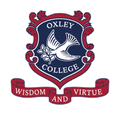Secondary School

This week’s Secondary Assembly on Monday 26 May was a significant one for our College community. We began by celebrating the leadership of our Year 7 Home Group Captains, who were proudly presented with their badges. These students have already shown great promise in their roles, and we look forward to seeing them grow as leaders within their Home Groups and the wider College.
Time was also dedicated to preparing students for the upcoming Capstone assessments for Years 7 – 9 and Semester Examinations for Years 10 and 11, which commence this Friday 30 May. Several staff members shared valuable insights and advice to help students approach this period with confidence.
The Power of Sleep
Mrs Danielle Bruce, Director of Student Wellbeing and College Psychologist, spoke about the importance of sleep, especially during times of academic pressure. Students were reminded that sleep is not just about rest—it’s a vital part of how we learn, grow, and stay healthy.
Adolescents are all in a critical stage of brain development, and sleep plays a key role in consolidating memory, regulating mood, and supporting physical health. When students get the recommended 8 to 10 hours of sleep per night, they are more likely to retain what they’ve studied, manage stress effectively, and approach challenges with a clear mind.
Mrs Bruce also highlighted that poor sleep can lead to increased anxiety, irritability, and difficulty concentrating, factors that can significantly impact performance during class and when completing assessments. Students were encouraged to treat sleep as part of their study plan, not something to sacrifice for late-night cramming, scrolling Instagram or playing games.
Establishing a healthy sleep routine can be as simple as going to bed and waking up at the same time each day, avoiding screens before bed, and winding down with a calming activity like reading or journalling. These habits help signal to the brain that it’s time to rest, making it easier to fall asleep and stay asleep.
Study Strategies: Examinations and Capstones
Mr Stephen White, Gifted and Talented Education Coordinator, offered several pieces of thoughtful and practical advice for exam preparation and Capstones. Students were reminded that success doesn’t come from last-minute panic, but from consistent, focused effort over time.
Students should begin by setting clear goals for each study session. Rather than simply reading over notes, students should engage actively with the material, summarising key points in their own words, teaching concepts to someone else, or using flashcards to test their recall. These techniques help deepen understanding and improve long-term retention.
Mr White also spoke about the importance of maintaining balance. While it’s important to dedicate time to study, it’s equally important to take breaks, eat well, stay hydrated, and get outside for fresh air and movement. A healthy body supports a healthy mind.
As always, students are encouraged to reach out for help when needed from their teachers, No one has to go through this period alone, and asking questions is a sign of strength, not weakness.
Creating a Study-Friendly Environment
A clean and organised study space can have a significant impact on a student’s ability to focus. Students are encouraged to keep their desks free from clutter, ensure good lighting, and remove distractions such as mobile phones or unrelated materials. A tidy space helps create a clear mind, making it easier to concentrate and stay motivated.
Choose the Right Location
Select a quiet, low-traffic area of the home where distractions are minimal. Ideally, this space should be separate from areas associated with relaxation, like the bed or couch, to help the brain associate the space with productivity.
Keep It Clutter-Free
A tidy desk helps create a tidy mind. Remove unnecessary items and only keep what’s needed for the task at hand—such as notebooks, pens, textbooks, and a laptop or tablet. Use trays, folders, or drawers to organise papers and supplies.
Ensure Good Lighting
Natural light is ideal, but if that’s not possible, use a bright desk lamp that reduces eye strain. Poor lighting can lead to fatigue and make it harder to concentrate.
Use a Comfortable Chair
A supportive chair that encourages good posture is essential. Sitting for long periods in an uncomfortable position can lead to physical discomfort and reduced focus.
Minimise Distractions
Keep phones, gaming devices, and unrelated materials out of reach during study time. Consider using apps or settings that block notifications or limit screen time.
Personalise the Space
Add a few personal touches—like a motivational quote, a small plant, or a calming photo—to make the space inviting without becoming distracting.
Keep Supplies Within Reach
Ensure all necessary materials—pens, highlighters, sticky notes, calculators—are easily accessible. This reduces the need to get up frequently and break concentration.
Use a Clock or Timer
Having a clock nearby helps manage time effectively. Using a timer for focused study sessions (like the Pomodoro Technique) can also improve productivity.
Maintain the Space Daily
Encourage students to spend a few minutes at the end of each study session tidying up. A clean space is more inviting and easier to return to the next day.
Attendance and Connection
As winter approaches, we are mindful of the increased risk of illness. While it is important for students to stay home when genuinely unwell, regular attendance remains essential for academic progress and social connection.
A student’s attendance is considered excellent if they have missed four or fewer days this semester. This level of attendance gives them the best chance to achieve their potential.
Average attendance is up to six days absent, while below average attendance—more than six days—can make it difficult for students to stay on top of their learning and maintain friendships.
Students who have missed eight or more days are considered at risk, as they may struggle to keep up with classwork and feel disconnected from the College community.
Punctuality is also important. Home Group is a vital part of the school day, where students receive announcements, updates, and a chance to prepare mentally for the day ahead. Regular lateness can disrupt this routine and impact a student’s ability to stay organised and engaged.
Students Using Artificial Intelligence (Study and Assessments)
Mr Verlin Govender, Learning Technologies Coordinator, addressed the appropriate use of Artificial Intelligence (AI) in learning. Students were reminded that:
- AI can be a helpful tool for brainstorming, editing, and refining ideas—but it must be used ethically.
- All AI use must be disclosed using the College’s AI Disclosure Guidelines, which are outlined in the Student Diary and available on the College website.
- Uncredited use of AI-generated content is considered plagiarism and will be treated as academic misconduct.
The College’s Senior School AI Policy outlines five levels of AI use, from no AI involvement to full collaboration. Students must cite any AI-generated content and include it in their bibliographies. This ensures transparency and upholds academic integrity of every student’s work.
EduTesting Completed
We are pleased to share that EduTesting for Years 7 and 8 was successfully completed last week. Thank you to all students and staff for your cooperation and commitment to this important process.
2025 Secondary School Cross Country
Congratulations to all our students who competed in the 2025 House Cross Country. Some of our teachers even dared an attempt this year and I am happy to announce that we did not lose any to “the small hill”, known as Heartbreak Hill, that features prominently on the course.
Students who finished in the top three in their age group will be acknowledged during the next Secondary Assembly in coming weeks.
2025 Secondary Cross Country House Results
1st Place: Gibeon Warriors (Red House) with 928 Points
2nd Place: Zion Crusaders (Blue House) with 912 Points
3rd Place: Tabor Trojans (White House) with 758 Points
A Word of Encouragement for Exams and Capstones
As we enter this season of assessments and exams, it’s natural for students and families to feel a mix of anticipation and anxiety. In these moments, we are reminded of the strength and peace that comes from trusting in God.
Commit to the Lord whatever you do, and He will establish your plans.
Proverbs 16:3 (NIV)
As with all things, we are encouraged to place our efforts in God’s hands. When we work diligently and commit our work to Him, we can trust that He will guide our steps and honour our perseverance. May this examination and assessment period serve as a time of growth, reflection, and achievement for all our students.
James Avram
Deputy Principal and Head of Secondary

